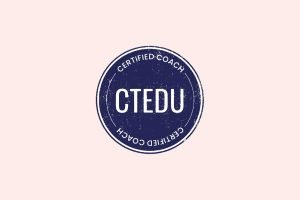Last updated on July 16, 2024
If you’ve ever caught yourself thinking,” How can I get my clients to really get themselves?” You’re not alone.
As coaches, we’re always looking for ways to boost self-awareness in our clients. Self-awareness is a crucial part of personal growth, and helping them better understand their thoughts and emotions matter.
In this post, we’ll cover the best self-awareness coaching tools to try today.
Table of Contents
1. Daily Gratitude Diary Template
Gratitude is a powerful emotion, and it can transform our perspective and approach to life.
This diary acts as a space where clients can jot down things they are grateful for each day. Whether it’s appreciating a warm cup of Cappuccino, a kind word from a friend, or a personal achievement, the Daily Gratitude Diary template helps in shifting focus from what’s lacking to what’s abundant in their lives.
2. Personal Values Identification Workbook
The Personal Values Identification Workbook is designed to help clients identify and prioritize their core values.
It typically includes a series of exercises and lists to help individuals recognize what is truly important to them.
By understanding their values, clients can make decisions more aligned with their authentic selves and live a more purposeful and fulfilling life.
3. Personal SWOT Exercise
The Personal SWOT Exercise pairs really well with the Personal Values Identification Workbook.
It gives clients a structured way to look at their strengths and weaknesses and then figure out how these elements tie into their core values.
4. Troll Travels: Who am I Exercise
Troll Travels is a unique and engaging exercise that helps with self-discovery. It’s about determining what traits and qualities truly matter to your clients.
The exercise kicks off with clients jotting down both their good and not-so-good qualities. Then, on the next page, they start narrowing these down to what they think matters the most.
The goal is to help clients identify the core aspects of their identity by emphasizing qualities they genuinely value, independent of societal expectations or external influences.
5. Johari Window
Created by psychologists Harrington Ingham and Joseph Luft, the Johari Window is a tool used to help people better understand their relationship with themselves and others. It’s a four-quadrant grid that includes:
- Open Area: Traits known to the individual and others.
- Blind Area: Traits unknown to the individual but known to others.
- Hidden Area: Traits known to the individual but kept from others.
- Unknown Area: Traits unknown to both the individual and others.
It’s particularly effective in settings where trust-building and team dynamics are important.

6. Draw Out Your Gremlin Exercise
Everyone has that little voice of self-doubt—let’s call it the ‘gremlin’. This exercise has clients sketch out this inner critic. It sounds quirky, but it’s super effective.
By putting a face to these doubts, clients can confront and manage them better, helping them to break free from self-imposed limits.
7. Meditation
Guiding clients through meditative practices is a fantastic way to help them find their zen, gain clarity, and connect deeper with themselves.
If you want to create your own guided meditation, check out this detailed guide. Another option is this Calming Guided Meditation Scripts & Toolkit.
8. What Makes My Heart Sing? Coaching Exercise
This exercise is about rediscovering passion and joy. Clients are guided to reflect on activities, people, and experiences that bring them genuine happiness.
By identifying these, clients can align their lives more closely with what truly makes their heart sing.
9. Self-Care Check-in and Needs Review
Self-Care Check-in and Needs Review is one of the most practical self-love coaching tools out there.
It’s like a personal tune-up session where clients evaluate how they’re doing in terms of self-care.
From physical health to emotional well-being and everything in between, this check-in helps clients spot what they need more (or less) of in their lives. It’s a proactive step towards all-around wellness.
10. Self-Discovery Toolkit
Think of the Self-Discovery Toolkit as the Swiss Army knife for self-awareness. It’s packed with different tools—personality tests, journal prompts, life maps, you name it.
The idea is to give clients a variety of ways to explore and understand themselves. It’s about offering them multiple paths to discover their values, strengths, and areas for growth.
Conclusion
To sum it up, our goal as coaches is to arm our clients with the best tools to navigate their individual paths toward self-awareness.
Whether it’s through gratitude diaries, meditation, or quirky exercises, these methods are here to make the journey much more enjoyable and enriching.
If you found this post helpful, feel free to check out the top self-care coach certification programs you can take this year.
The Life Coach Magazine staff is your team for high-quality content on topics from personal development, to coaching tips, to how to grow your coaching business.










Be First to Comment